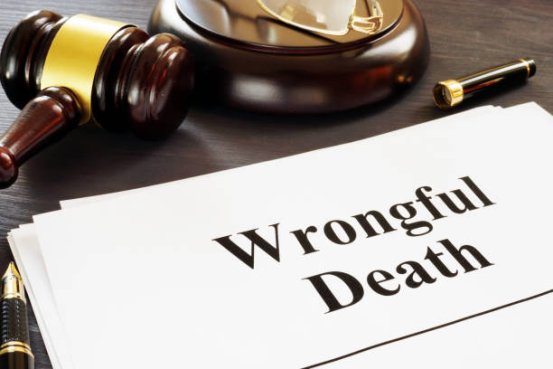Losing a loved one is profoundly difficult, and when that loss results from another’s negligence, the emotional and financial impact can be overwhelming. Wrongful death attorneys provide critical support to families seeking justice and rightful compensation.

What Constitutes a Wrongful Death Claim?
A wrongful death claim is filed when a person dies due to the negligent or wrongful actions of another individual or organization. Common causes include automobile accidents, medical malpractice, defective products, or other preventable incidents. The primary goal of such a claim is to provide financial assistance to surviving family members, covering funeral costs, lost income, and the irreplaceable loss of companionship. These cases are legally complex, requiring specialized knowledge, which is why skilled wrongful death lawyers are essential. For more details, see What Are Things to Know About My Wrongful Death Case?
Reasons to Hire a Wrongful Death Attorney
Handling a wrongful death case without professional guidance can be daunting. Lawyers offer several key advantages:
-
Expert Legal Advice: Attorneys are familiar with state-specific laws, ensuring accurate handling of claims.
-
Insurance Negotiation: They advocate for families to obtain fair settlements from insurers.
-
Evidence and Documentation: Lawyers collect crucial medical records, witness statements, and other documentation to strengthen the case.
-
Court Representation: Skilled attorneys guide families through trials, safeguarding their legal rights throughout the process.
Additional guidance is available in Everything a Lawyer Wants You to Know About Wrongful Death.
Steps in Filing a Wrongful Death Lawsuit
The process typically follows a structured sequence:
-
Initial Consultation: Reviewing the details of the case with an attorney.
-
Investigation: Gathering evidence, interviewing witnesses, and building a comprehensive case.
-
Filing the Lawsuit: Submitting official paperwork to initiate legal proceedings.
-
Pre-Trial Processes: Including discovery, motions, and settlement discussions.
-
Trial: Presenting the case to a judge or jury if a settlement cannot be reached.
-
Appeals: Pursued by either party if the outcome is contested.
For further insights, see Wrongful Death Lawsuits.
Settlements vs. Court Trials
Wrongful death cases may conclude through settlements or trials:
-
Settlements: Typically negotiated outside court, providing faster resolution and reduced costs.
-
Trials: Cases presented before a judge or jury, which may take longer but can result in higher compensation.
Understanding these options allows families to make informed decisions. Refer to Don’t Lose Your Wrongful Death Case – What You Need to Know for more information.
Attorney Fees and Cost Structures
Many wrongful death attorneys work on contingency, meaning they only receive payment if the case is successful. Common fee arrangements include:
| Service | Contingency Fee | Estimated Total Cost ($) |
| Filing Initial Paperwork | 33% | Varies |
| Pre-Trial Motions | 33%–40% | Varies |
| Out-of-Court Settlement | 30%–35% | Varies |
| Trial Representation | 35%–45% | Varies |
| Appeals Process | +5%–10% | Extra |
This approach reduces upfront costs, making legal support more accessible. For additional guidance, see Filing a Wrongful Death Lawsuit Can Bring Accountability.
Conclusion
Wrongful death lawyers provide indispensable assistance to families navigating the legal aftermath of a tragic loss. Although emotionally and financially challenging, pursuing a claim ensures accountability, offers closure, and can secure financial compensation for survivors. Proper legal guidance helps families focus on healing while protecting their rights and interests.
